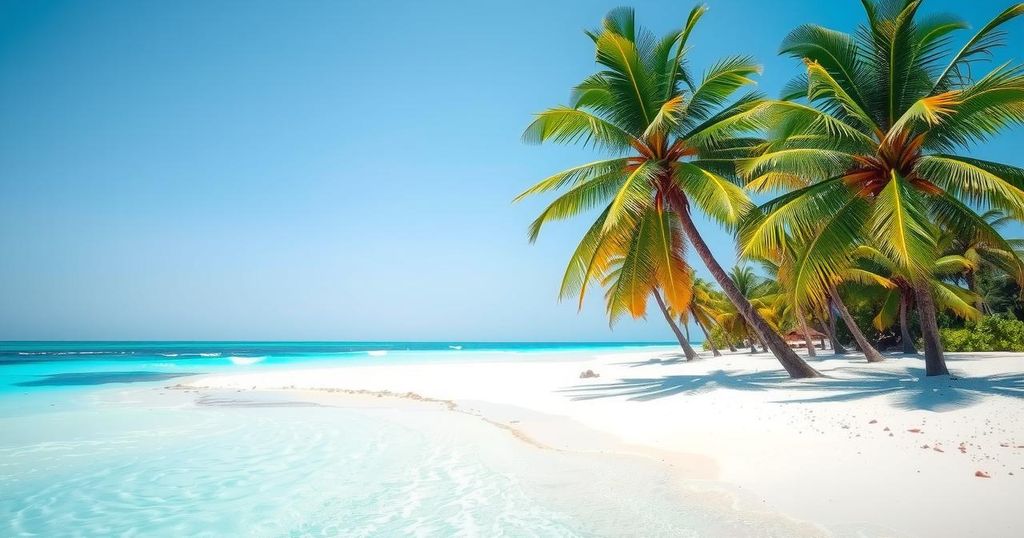Politics
AMERICAS, BARBADOS, CA, CARIBBEAN, CARIBBEAN COMMUNITY, CARICOM, CORRUPTION, CRISIS, CUBA, DEMOCRACY, DOMINICAN REPUBLIC, DONALD TRUMP, GANG VIOLENCE, GUYANA, HAITI, HAITIAN NATIONAL POLICE, INTERNATIONAL ORGANIZATION FOR MIGRATION, JAMAICA, JOE BIDEN, LATIN AMERICA, MARCO RUBIO, MIGRATION, NORTH AMERICA, PORT - AU - PRINCE, RUBIO, SOUTH AMERICA, SURINAME, TRINIDAD AND TOBAGO, UNITED STATES, US, VENEZUELA
Leila Ramsay
0 Comments
Marco Rubio Visits Caribbean to Address Haiti and Guyana Issues
US Secretary of State Marco Rubio’s Caribbean visit addresses Haiti’s crisis and supports Guyana’s oil interests amid Venezuela tensions. He will meet with CARICOM leaders to tackle regional issues including illegal immigration and violence, while discussing potential financial strains from US policy changes.
On Wednesday, United States Secretary of State Marco Rubio commenced his trip to the Caribbean to seek solutions for the ongoing crisis in Haiti and to express solidarity with Guyana amid its territorial disputes with Venezuela. His visit began in Jamaica, where he will attend a Caribbean Community (CARICOM) summit, followed by stops in Guyana and Suriname.
During the CARICOM summit, Secretary Rubio is expected to engage with Haitian leaders and representatives from Jamaica, Barbados, and Trinidad and Tobago. His main agenda includes combating illegal immigration, violence, and financial crimes within the region. “We will work together to crack down on illegal immigration, violence and contraband in our region,” Rubio stated in a message regarding his visit.
Haiti, the poorest country in the Americas, continues to face severe challenges including a breakdown of governmental authority and escalating violence. An international security mission led by Kenya, which received support from former President Joe Biden, aimed to restore stability but has struggled, resulting in increased violence and the displacement of over 60,000 individuals in Port-au-Prince alone, according to the International Organization for Migration.
The Trump administration, under Secretary Rubio’s guidance, has exempted certain US assistance cuts to maintain support for operations in Haiti. However, no new policy proposals have emerged regarding the nation, other than the rescinding of deportation protections for Haitian nationals in the United States.
Rubio, alongside Mauricio Claver-Carone, the US special envoy to Latin America, is gathering insights from Caribbean nations on the unfolding situation in Haiti. Claver-Carone remarked on the dire circumstances in Haiti and mentioned that a strategy to bolster the Haitian National Police is in the works. Notably, Rubio has previously indicated that the international mission’s capacity to eliminate gangs in Haiti must be expanded before discussing the nation’s future.
In addition to addressing Haiti, Secretary Rubio’s visit includes a focus on Guyana’s burgeoning oil sector, which has drawn significant interest following substantial oil discoveries. Guyana holds the largest per capita crude oil reserves globally, primarily located in the Essequibo region, a territory that is under dispute with Venezuela, led by leftist leader Nicolás Maduro.
Recently, Guyana protested against what it described as an incursion by a Venezuelan military vessel. The Venezuelan government has denied these allegations and sought a meeting between President Maduro and Guyana’s President Irfaan Ali, who has declined the meeting. Claver-Carone compared Guyana to Arabian Gulf nations in terms of its strategic importance and the security collaboration required due to threats from Venezuela.
Despite strengthening ties with the United States, President Ali emphasized that Caribbean nations have concerns regarding potential punitive measures that could arise from Trump’s administration, including fines for using Chinese-made shipping containers. He stressed the importance of proactive discussions to minimize regional impacts, while Patrick Antoine of the Caribbean Private Sector Organisation warned that such measures could significantly inflate freight costs across the CARICOM region.
In summary, Secretary of State Marco Rubio’s visit to the Caribbean serves to reinforce US commitment to supporting Haiti amidst its turmoil and to address Guyana’s strategic interests regarding oil reserves and security threats posed by Venezuela. The discussions at the CARICOM summit will focus on collaboration to combat challenges such as migration and violence while assessing regional economic repercussions from potential US policy changes. Continued dialogues among Caribbean leaders are essential to navigate these pressing issues effectively.
Original Source: www.wyomingnewsnow.tv




Post Comment